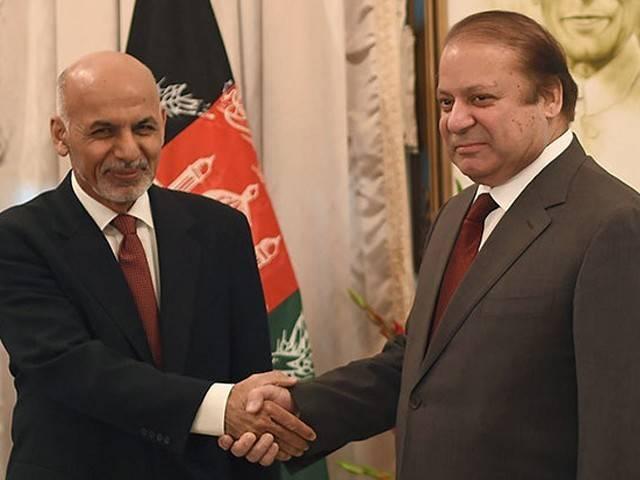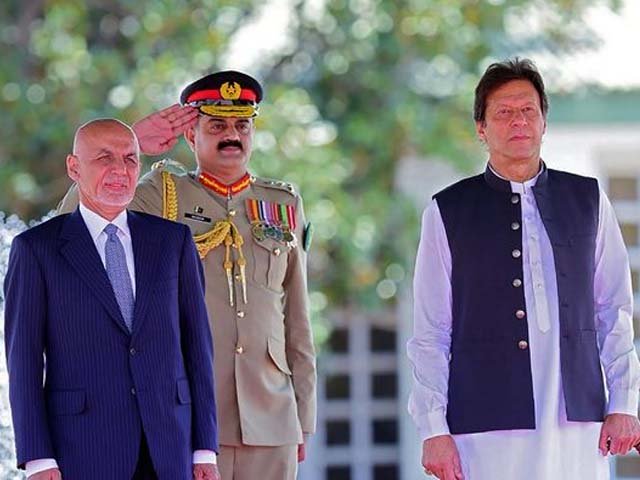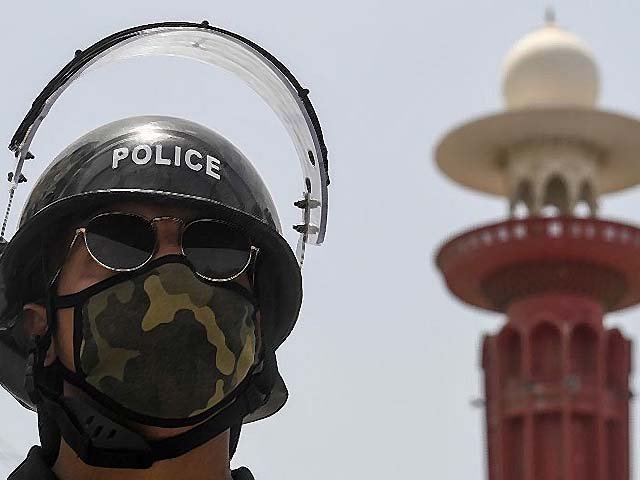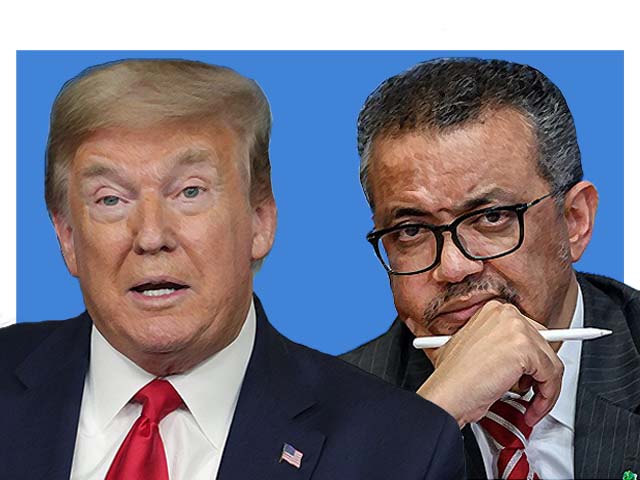
Afghanistan needs to realise that it cannot beat the same decade old drum of “Pakistan harbouring terrorists against Afghanistan”.
PHOTO: AFP.
Who is the real winner in Af-Pak tensions?
Ghani, who always talked about peace, has reached a state where he considers Pakistan nothing but an enemy.
Recently, when Pakistan decided to move heavy artillery towards the Afghan border, many wondered if a full-scale war was about to be initiated between the two countries. Surprisingly, Kabul refrained from retaliating when Pakistani forces shelled terror camps on the other side of the border.
It was hard to fathom such an action as Afghanistan has always been considered “a brotherly neighbour”. Where India has always remained our nemesis, Afghanistan now might well be pilfering the former’s title of being our “arch rival”.
So how did we end up in this mess where brothers have turned into fierce rivals?
Firstly, since 2001, both the countries have fuelled a never-ending cycle of blame game. This back and forth blame game was activated soon after major attacks took place in both countries. Even though Pakistan’s blame is divided between Afghanistan and India, Afghanistan’s current and only scapegoat is Pakistan.
Secondly, the shift in regional alliances has also somewhat contributed in souring these ties. While Hamid Karzai was less explicit in his support for India, President Ashraf Ghani, on the other hand, has embraced the country with open arms. He holds India and Prime Minister Narendra Modi as a “brother replacement” for Pakistan. The shifting of these alliances was witnessed recently in a couple of high-profile meetings in India and Russia.
When the Heart of Asia conference was organised in Amritsar last year, Afghanistan not only joined hands with India in shaming Pakistan and calling it a ‘facilitator of terror’, it also refused a generous amount of financial aid from Islamabad.
It seemed as if President Ghani was more than okay to play Modi’s sidekick in supposedly isolating Pakistan on the global stage – an Indian policy still far from fruition. Nonetheless, Afghanistan’s stand surely angered Pakistan.
Kabul was irked by Russia organising a trilateral moot on Afghanistan in Moscow, inviting only China and Pakistan to discuss the imminent rise of Islamic State of Iraq and Syria (ISIS) in Afghanistan. Afghanistan and the US blamed Russia as well as Pakistan for extending ties with the Taliban and interfering in Kabul’s internal matters. As a result, Moscow agreed to invite Afghanistan, India and Iran for further summits.
It seems that the recent spate of terror attacks in Pakistan provided Islamabad with an opportunity to finally call Kabul out on its alleged support for the anti-Pakistan terror groups, especially Tehreek-e-Taliban’s (TTP) fraction, Jamaatul Ahrar. Interestingly, Kabul has also made similar claims of Islamabad supporting the anti-Afghanistan Haqqani network and the Taliban.
But Pakistan went one step further this time. It not only blamed Kabul and sealed the Torkham border, but also bombarded terror camps on the other side. On a diplomatic front, Pakistan handed over a list of 76 wanted terrorists from Kabul who Islamabad alleges are operating from sanctuaries in Afghanistan. In a tit-for-tat move, Afghanistan also gave a list of its own, naming more than 80 high-profile leaders of the Taliban and the Haqqani network which it claims are based in Pakistan.
What came as a surprise this time around was the restraint shown by Kabul. At a recent Track 1.5/II diplomacy meeting in Kabul – attended by members of the Pakistan and Afghan civil society, politicians and security officials – the Afghan delegation admitted to have overused the “blame game” tactic. Furthermore, they planned to not only show restraint in the future but also to engage in effective confidence building dialogues.
This paradigm shift in Kabul should be viewed positively by Pakistan, because Taliban’s umbrella force – under which TTP, Jamaatul Ahrar, Islamic Movement of Uzbekistan (IMU) and others are operating – is a common enemy for both the countries. Therefore, why can’t both countries work together against their mutual enemies?
From a security stand point, the only winners amid these tensions are the terrorist groups operating from both sides of the borders. Because of the on-going bickering over the past decade and a half, groups such as TTP, al Qaeda, the Haqqani and the Taliban have managed to survive in one form or the other.
Afghanistan needs to realise that it cannot beat the same decade old drum of ‘Pakistan harbouring terrorists against Afghanistan’ anymore, especially since Pakistan has lost more than 60,000 innocent civilians in terror attacks. Pakistan, on the other hand, should also grasp how a well-educated president like Ghani, who always talked about peace between the neighbours, has reached a state where he considers Pakistan nothing but an enemy.
Pakistan is a big and somewhat functional country, unlike Afghanistan. Rather than kneejerk reactions and escalating tensions with Afghanistan, Pakistan should try to regain the lost space through administrative measures that ease life for Afghan refugees, traders, and commoners.




COMMENTS (12)
Comments are moderated and generally will be posted if they are on-topic and not abusive.
For more information, please see our Comments FAQ